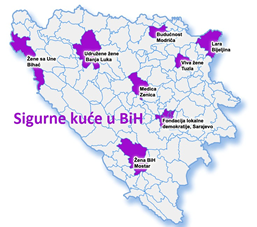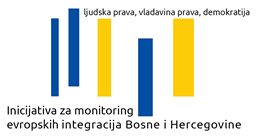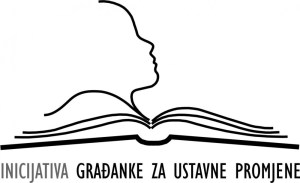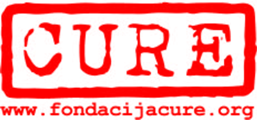Joint statement by CSOs, civil society activists and gender experts taking part in sub-regional consultation for Western Balkans and Turkey
We, 43 activists from the Western Balkans and Turkey alert our governments that the COVID-19 pandemic is not an excuse to aggravate existing inequalities and turn a blind eye to violence against women. We are very concerned about likely release of perpetrators of violence against women as is intended in Turkey and we call upon the Turkish Government to respect its’ obligations in line with the Council of Europe Convention on preventing and combating violence against women and domestic violence.
1. We stand strong and united in solidarity with each other and with women and men who have freedom and wellbeing for all at heart. We will not let the COVID-19 crisis become an excuse for deeper rooting of authoritarian rule, unaccountable public spending and ineffective policy solutions that aggravate rather than mitigate issues.
2. Our states must ensure effective protection of women and children from domestic violence, economic violence and cyber violence against women, in close cooperation with women’s groups that have earned women’s trust and serve as resource pools for gender competence in our region. Often, women are replacing governments where governments fail in the Western Balkan and Turkey. It is time for our government officials to recognize women and women’s groups as allies and partners for development and resilience building of our societies through relevant policies that are followed through with balanced and consistent resource allocations.
3. No national and/or local government can fight the pandemic alone. To fight the pandemic effectively means to fight it through social solidarity. Volunteerism and activism must not be paralyzed, halted or controlled by political agendas. Public resources must be made available for civil society organizations, including women’s organizations, for provision of services and protection of rights of women from vulnerable groups: rural women, elderly women, women with disabilities, women survivors of domestic and partner violence, LGBTI, single mothers, refugees, and other vulnerable groups. Service providers from public, nonprofit and private sector must be protected effectively from the pandemic spread, based on the same protocols and standards. Our systems are fragile and vulnerable and we must all protect them and contribute to their development and reinforcement.
4. Women are working at the front lines and fighting COVID-19 side by side with men. We urge our governments to recognize and acknowledge the contribution of women in fighting the pandemic as doctors, nurses, health workers, cleaners, journalists, women working in supermarkets, etc. After extended work hours, women front-liners still go back to unpaid caring, nurturing and cleaning work at home, while governments and media are missing on opportunities to raise public awareness of how unfair and unsustainable that is and to
promote a more balanced, just and fair distribution of unpaid work. Also, family support measures should be adapted to different household structures, including single headed households, often headed in fact by women and girls.
5. For women entrepreneurs the consequences of this crisis will be more severe and much harsher in comparison with their male counterparts who will also be adversely affected. In our sub-region, women in the private sector are concentrated in microenterprises in the service sector and in the informal economy. A strong evidence base is already available and it points unequivocally at an immediate and sharp decrease in demand for products and services in sectors where women predominate; many women business owners and entrepreneurs now struggle to meet their obligations including taxes, social and pension contributions; and they have absorbed additional expenses resulting from the crisis. Women further carry a much greater burden of regular and additional unpaid work resulting from the pandemic, closure of schools and online schooling of children. Gender responsive economic measures must be put in place to relieve women-owned businesses from adverse consequences of the pandemic. Otherwise, we will face an increase in poverty levels of women and children, a significant increase in closure of women-owned business, and a further increase in domestic and partner violence, simultaneously with a greater economic dependence of women.
6. Gender responsive resource allocations is to be integrated in all public expenditures, using gender responsive budgeting toolbox to achieve positive results on both the sectoral priorities and on gender equality. Now, more than before, it is important for local and national governments to support resilient community building through hybrid systems2 that reach out to all. This cannot be achieved without consistently available gender responsive data.
7. Special measures that combine economic support with social services for women and children are needed in response to the unmet needs of vulnerable women who are currently being left behind. Hundreds of thousands of women who work in informal economy in our sub-region earn less than men, have a lesser job security, fewer rights, and are now left without income. Thus far, no government in our sub-region has managed to design and implement measures that will effectively attend to the urgent and long term needs of this large group of women. Their safety and livelihood are a socio-economic priority. Among others, this group includes female foreign domestic workers, textile workers, women in supporting roles in agriculture, and migrant women who are particularly strained.
8. Urgent attention, protection, services and livelihood support are also needed for elderly and rural women who are among the most deprived citizens in our sub-region: in some areas, there is regular water supply and focus on hygiene is difficult for them as they assume the main responsibility for the entire household. There is no public transport, no access to health care, services, or income from fruit and vegetable markets. Internet access is limited for them as is access to information. When mobility is limited, it is often men who get to move. There is a rise in domestic violence. Elderly women and women with disabilities living in residential
institutions are completely isolated and there is no public data regarding their status or health status. In our sub-region, elderly women and men are discriminated against and deprived of their right to move freely and make their own decisions. Under the pretense of protection and care, elderly people are jailed inside their own households without adequate support services to ensure their physical and mental health and wellbeing.
9. Persons with disabilities (PWDs), including women and girls with disabilities, are at greater risk of contracting COVID-193. Lockdown disproportionately affects PWDs through separation from caregivers, support staff and assistants; exclusion from work and education because distance learning and online workspaces may be inaccessible and may lack appropriate assistive devices; stigma and discrimination when persons with disabilities are systematically deprioritized for available health services. Women with disabilities face barriers in accessing gender based violence programs and services, including information in inaccessible formats; lack of transportation to health facilities and women’s centers; environmental barriers at health facilities and women’s centers (e.g. stairs, no wheelchair accessible toilets, etc.); and negative attitudes of family members, communities and even staff who provide services. For women and men with intellectual disabilities, even the most basic information is unavailable in user friendly formats. Gender based violence services for women with disabilities and their caregivers during the COVID-19 pandemic also need to be revisited and remodeled. Women’s organizations are already adapting case management to include mobile phone case management, WhatsApp communication, and different forms of videoconferencing.
10. Across our sub-region, women own less and work harder than men. In order to achieve gender equality in line with the obligations undertaken under both the international conventions and the domestic laws which constitute a unified legal framework, our governments must increase investment in gender equality through response to COVID-19 and the aftermath. We are alerting our governments, societies and international development partners to negative immediate, medium- and long-term consequences of de-investment in public health, education, social services, soft and hard infrastructure that puts citizens – women and men, girls and boys at the center. This crisis teaches us that no cuts in these core sectors should be considered. On the contrary, the current global experience shows that increased public investment in these sectors where women constitute a backbone of the wellbeing for our entire societies is an integral part of the answer to resilience building.
11. This is an opportunity for our societies to engage young girls and young adults as equals and to ensure that decision makers hear their voices. This is a first time for everyone and it is not true that traditional solutions provide good enough answers. For youth, this is not only about survival. It is about self-sacrifice and care for their loved ones, and enormous uncertainties that the future brings on top of accumulated barriers to accessing jobs, social status and a say in decision-making,
12. We pledge international partners for support to an effective mechanism of feminist solidarity that will help us to respond loudly to attempts to shrink our space, rid us of our rights and curb our hard-won freedoms in the sub-region. We need to rely on each other to build strong fibers of healthy and functional societies that put wellbeing of their citizens – women and men at the forefront.
13. We further solicit international support to emergence of a Western Balkans and Turkey Sub-Regional Fund for Innovative Policy Solutions to address the persistent and new needs of vulnerable groups, including those resulting from emergencies and pandemic because we have a dated toolbox of measures that are not always well adjusted to realities of different groups and women and men. This fund would engage public, nonprofit and private sector actors in design, piloting and implementation of innovative user-centered solutions that build on our many sub-regional strengths. Also, we must seize this opportunity to come up with better answers so that we are better prepared, protected and included in providing a future response.
14. In our region, lack of government measures to guarantee individuals’ safe and timely access to essential sexual and reproductive health services, goods, and information during the pandemic is of particular concern. Women and girls are facing significant restrictions in safely accessing essential sexual and reproductive health services, particularly timely abortion care, post abortion care, and emergency contraception. Such restrictions disproportionately impact individuals belonging to marginalized groups, including women living in poverty, women with disabilities, Roma women, undocumented migrant women, adolescents, and women at risk or who are survivors of domestic and sexual violence. These restrictions also create unnecessary risks of exposure to COVID-19 for women and girls and their families as well as for health care providers4.
15. We pledge the media to include women from different professions, ages, ethnic backgrounds, sexual orientation, gender identity, health condition, disability, marital status, immigrant or refugee status, or any other status and experiences in dialogue about the future of our sub-region. Visibility of women and amplification of their diverse voices, including feminist voices, is a core job for the media in a democratic society. Availability of differences in starting points, experiences, needs and ideas make the Western Balkans and Turkey a uniquely textured and rich sub-region that must search for answers through collaboration and mutual learning.








